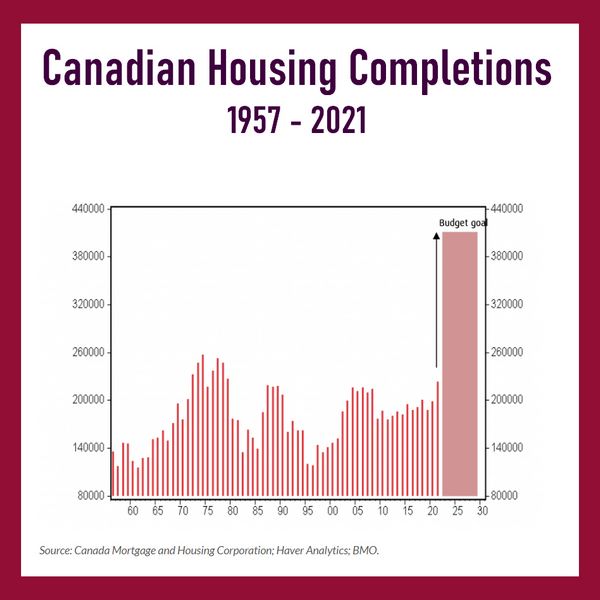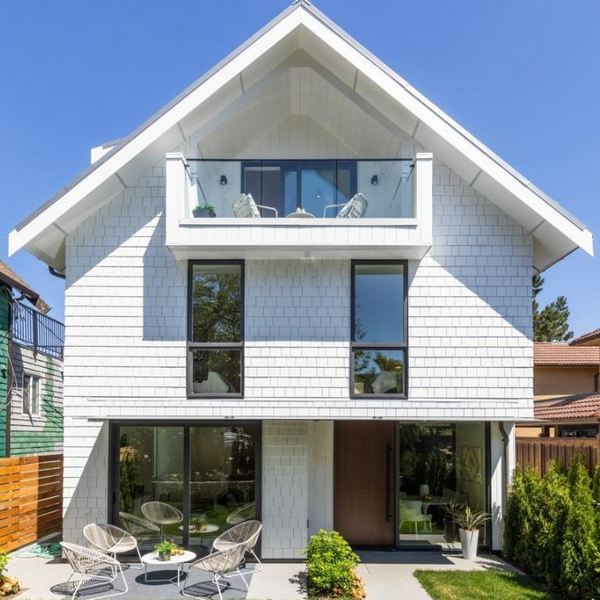The real estate market trends in February continue to reflect those observed in January. It shows a remarkable year-over-year sales growth of 31%. However, this growth appears less significant when compared to the 10-year average, with this February’s sales being 23.3% below that benchmark. However, this is an improvement from last February, which was 33% below the 10-year average.
As I wrote last month, the tide does seem to be turning. The inventory numbers are returning to normal levels. The number of newly listed properties for February is 0.2% below the 10-year average while the total number of listings are 3% above the 10-year average. From the chart below, you can see the trend in the sales-to-active listings ratio reverse. Sales-to-active listings ratio is a measure of the supply and demand. We know the listings have been increasing but the sales have increased faster. This is putting upward pressure in prices, resulting in price increases in all 3 property types.
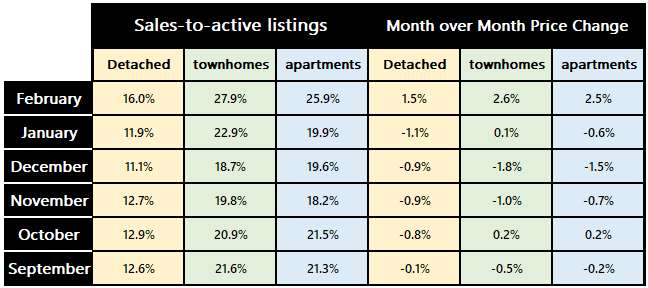
Predictions are currently leaning towards the Bank of Canada reducing interest rates in June. Most predict the rate to fall for the rest of the year, but it varies in regards to how much. Scotia Bank has made projections for real estate prices under different economic scenarios, predicting a decline in Canadian real estate prices this year ranging between 3.2% to 8.6%, depending on the economy’s performance. Not sure how it will play out in Vancouver. There are factors that will increase supply this year which may put downward pressure on price such as the restrictions of AirBnB starting May, people not being able to afford the new mortgage payments at renewal, and people who realize they do not qualify for the pre-sale they bought years ago. However, there are slowing economic signs that may force the Bank of Canada to lower rates and support prices. Our GDP per capita growth has been negative for 5 quarters in a row. We crammed in so many new immigrants and students, it makes the GDP look better but on a per capita basis it is actually worse. The number of active businesses are falling and insolvencies are hitting a 19-year high.
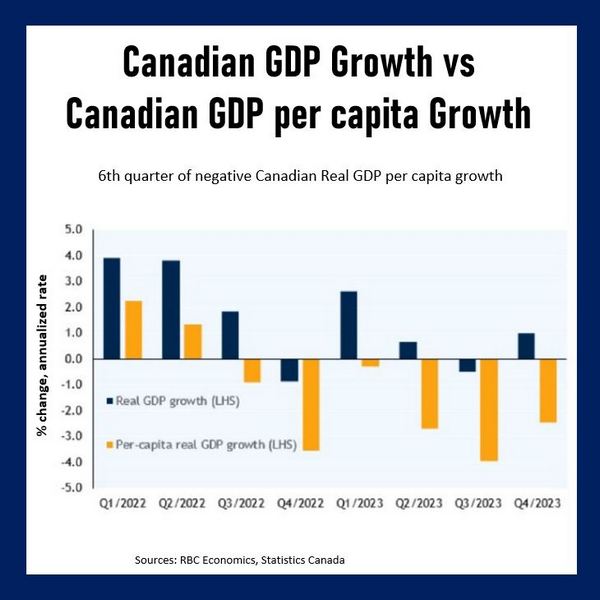
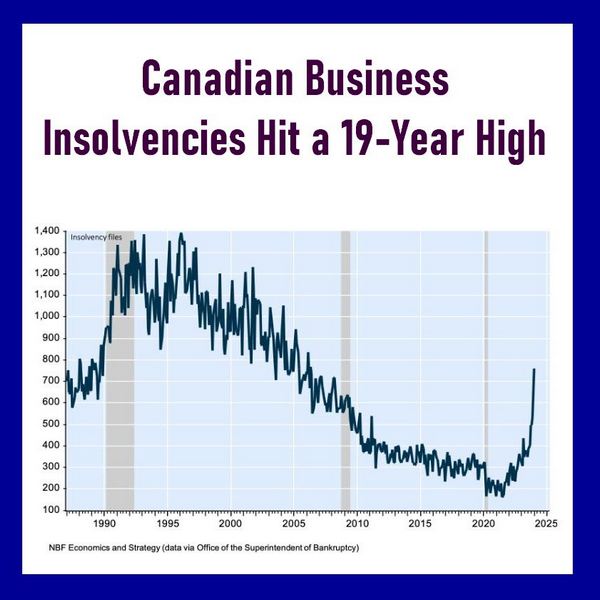
And mortgage delinquency is increasing but it is not as dramatic as the headlines would want you to believe. A 135.2% increase and 62% increase in mortgage delinquency rates in Ontario and BC respectively, does sound catastrophic but Canada historically has very low mortgage defaults. So it is an increase from a very low base. See the two charts below for a better perspective. And as a reference, the US current mortgage delinquency rate is 1.69%. But the economic conditions are getting worse.
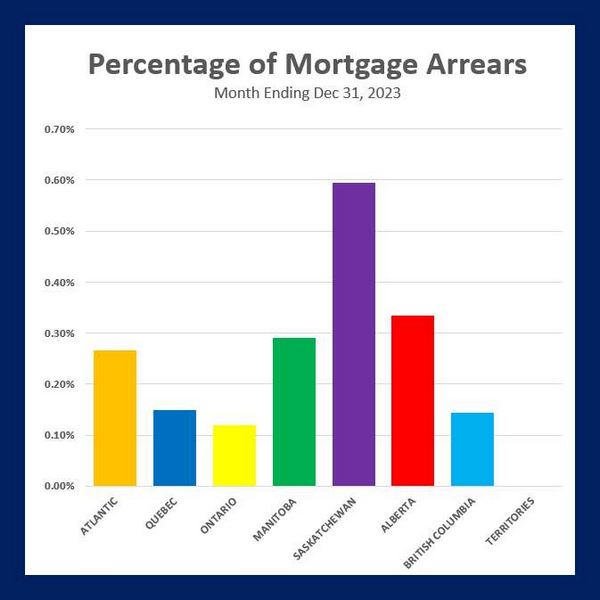
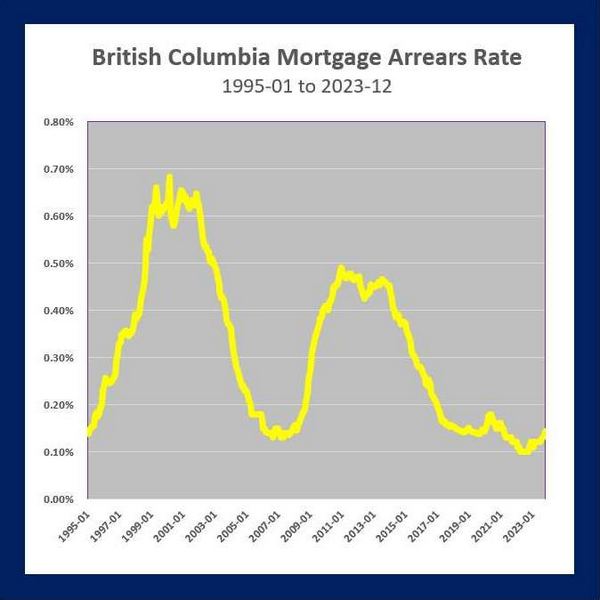
The interplay between the economy and the mortgage rate will impact real estate prices this year, but longer term I see real estate prices continue to go up. At the end of the day, it comes down to supply and demand. With the population growing quicker than houses are being built, it is a formula for higher prices. Add in the investors, foreign and domestic, rising labour costs and government red tape, this is a real estate dumpster fire. And it saddens me to believe that no one will be able to put it out.
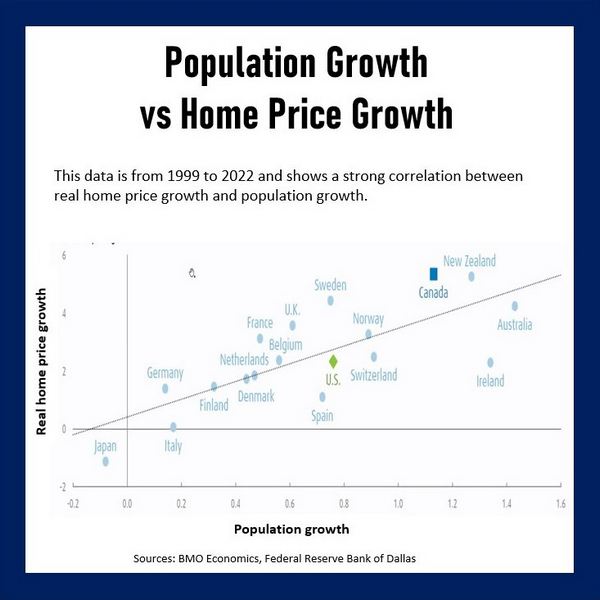
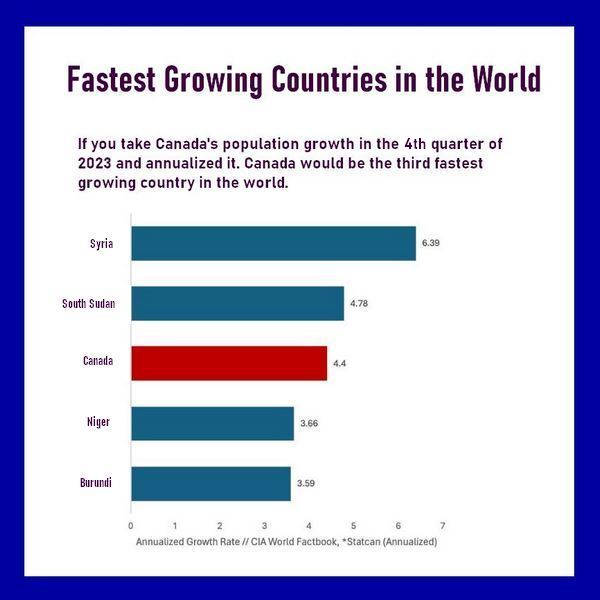
Note that Canada has one of the highest growth in population and real home prices over the last couple of decades. You can really see the strong correlation between population growth and house prices in the chart above. If you take the growth rate of the last quarter of 2023, Canada is actually the 3rd fastest growing country in the world. Kind’a crazy. If you need more convincing that prices will stay high look no further than the 2022 CMHC report: Restoring affordability by 2030. It basically stated that to get to housing affordability by 2030, we would need to double our pace of construction. This does not seem physically possible. Even if it was, wouldn’t the demand on labour and materials basically push the prices up until it wasn’t affordable?
We built about 240,000 units in 2023. How many new people came to Canada last year? About 1.25M. I think you get my point.
